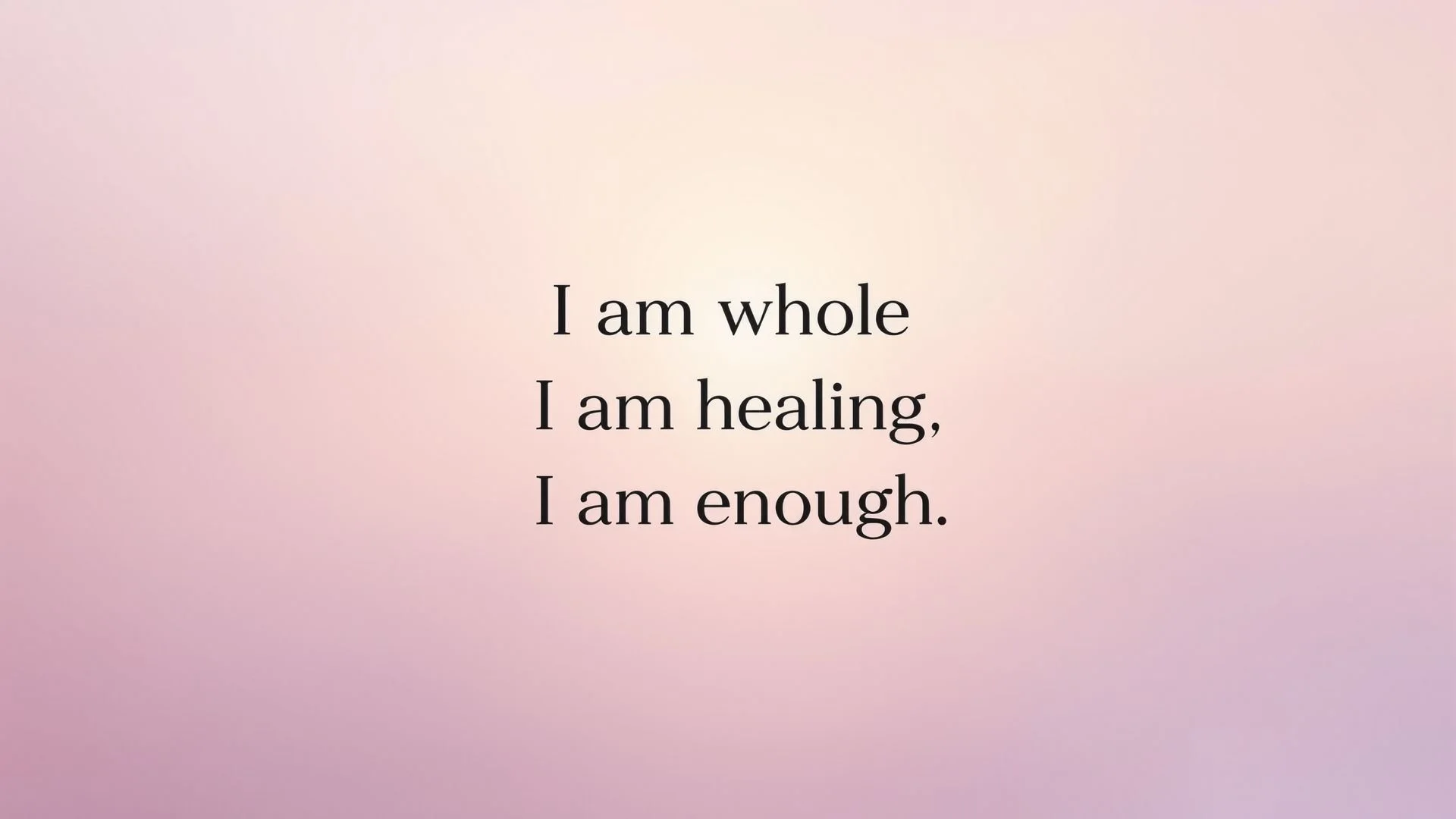“My marriage is so much better since I’ve been in hypnotherapy,” my client remarked at the beginning of his session. He had come to me at the request of his boss, who said get help with your chronic tardiness or lose your job. We had never discussed his marriage or his wife. So why was his marriage better? He now had tools to relax, calm down and calmly discuss his feelings with his partner.
Healthy relationships depend on communication. Yet for some of you, honest conversations can feel intimidating, overwhelming, or even frightening. Instead of expressing feelings clearly, you may shut down, avoid difficult discussions, become defensive, or struggle to truly listen. Over time, these patterns can create distance, misunderstanding, and emotional frustration.
What you might not realize is that communication anxiety is rarely about a lack of skills. More often, it reflects subconscious emotional patterns shaped by past experiences, fear of rejection, or uncertainty about emotional safety.
Hypnotherapy offers a powerful and gentle way to break these cycles by calming emotional triggers, strengthening confidence, and helping you communicate with clarity, presence, and authenticity.
Why Communication Anxiety Happens
Many adults believe they “should” be better communicators. When conversations feel stressful, they often blame themselves or their partners. However, communication anxiety usually develops long before current relationships begin.
Early life experiences, previous relationships, or emotionally charged situations can create subconscious beliefs such as:
“Conflict means rejection.”
“If I speak honestly, I’ll hurt someone.”
“My needs aren’t important.”
“It’s safer to stay quiet.”
These beliefs can activate the brain’s threat-response system during emotionally vulnerable conversations. When the nervous system perceives emotional risk, the body reacts with protective behaviors such as:
Avoiding difficult topics
Becoming overly agreeable
Becoming defensive or reactive
Shutting down emotionally
Struggling to listen without preparing a response
These reactions are not personal failures. They are learned protective patterns but patterns can be changed.
The Hidden Cost of Avoiding Honest Communication
When communication anxiety goes unaddressed, it can slowly erode connection. Your partner may feel misunderstood or emotionally distant. Small issues may grow into larger conflicts simply because the issues remain unspoken.
Over time, communication avoidance can lead to:
Increased resentment
Emotional disconnection
Repeated misunderstandings
Reduced intimacy and trust
Heightened stress and anxiety
Breaking this cycle requires more than communication tips or relationship advice. True change often happens when emotional triggers are addressed at the subconscious level.
How Hypnotherapy Helps Reduce Communication Anxiety
Hypnotherapy works by guiding the mind into a deeply relaxed and focused state where subconscious beliefs and emotional responses can be explored and reshaped safely.
When you work on communication anxiety through hypnotherapy, you can experience three important shifts.
1. Calming Emotional Triggers
During emotionally charged conversations, the brain sometimes reacts as though it is facing danger. Hypnotherapy helps retrain the nervous system to remain calm and present, even during sensitive discussions.
In practice, you may experience:
Reduced fear of conflict
Increased emotional steadiness
Greater comfort expressing thoughts and feelings
When the body feels safe, communication becomes clearer and more thoughtful.
2. Releasing Fear-Based Beliefs
Many communication struggles stem from deeply held beliefs formed earlier in life. Hypnotherapy helps you identify and gently release outdated subconscious messages that may be influencing present relationships.
Clients frequently replace beliefs such as “My voice doesn’t matter” with “My thoughts and feelings deserve respectful expression.”
These internal shifts can create profound changes in relationship confidence.
3. Strengthening Presence and Authentic Listening
Authentic communication requires more than speaking clearly. It also requires being emotionally present while listening.
Hypnotherapy helps you:
Reduce overthinking during conversations
Increase emotional awareness
Listen without immediate judgment or defensiveness
Respond rather than react
These skills foster deeper connection and mutual understanding.
Recognizing Communication Anxiety Patterns
You may be unaware that you experience communication anxiety because your patterns feel familiar. Signs may include:
Rehearsing conversations repeatedly before speaking
Avoiding expressing needs or concerns
Feeling anxious after sending messages or emails
Becoming overly emotional during disagreements
Struggling to stay focused when listening
Recognizing these patterns is an important first step toward change.
Practical Self-Calming Communication Tools
While hypnotherapy supports deeper transformation, here are three simple daily practices that can help build emotional confidence in communication:
1. Breathing to Reset Emotional Balance
Before important conversations, pause and take three slow, steady breaths. Allow the exhale to be slightly longer than the inhale. This helps calm the nervous system and improves emotional regulation.
2. Intentional Pause Technique.
If you feel triggered during a conversation, silently remind yourself:
“I can take a moment to respond thoughtfully.”
This small pause helps shift from emotional reactivity to conscious communication.
3. Grounded Listening Practice
While someone is speaking, gently focus on understanding their perspective rather than preparing your response. This strengthens connection and reduces defensive patterns.
How Communication Improves When Anxiety Decreases
When subconscious fear patterns begin to soften, communication often transforms naturally. You may notice:
Increased emotional confidence
Improved clarity in expressing needs
Reduced fear of disagreements
Greater empathy toward partners
Stronger trust and intimacy
Because healthy communication creates safety within conversations, allowing disagreements to become opportunities for understanding and growth.
Breaking Generational Communication Patterns
Many communication habits are learned through family dynamics and early emotional environments. Some individuals grow up in homes where conflict is avoided, while others experience intense or unpredictable communication styles.
Hypnotherapy helps you recognize these inherited patterns and consciously choose new communication responses. Breaking these cycles not only improves current relationships but also influences future family and relationship dynamics.
When to Consider Hypnotherapy for Communication Anxiety
Hypnotherapy may be particularly helpful when you:
Feel anxious before serious conversations
Avoid discussing important relationship topics
Struggle with conflict or emotional vulnerability
Notice repeating communication challenges across relationships
Want to strengthen confidence and emotional presence
Communication patterns are deeply connected to subconscious beliefs and emotional safety. Addressing these patterns at their source often creates lasting improvement.
Creating a New Communication Experience
Healthy communication is not about saying everything perfectly. It is about feeling safe enough to express thoughts honestly, listen openly, and remain emotionally connected during difficult conversations.
Hypnotherapy helps individuals develop this emotional security by strengthening confidence, calming fear responses, and reinforcing supportive internal dialogue. When communication anxiety begins to fade, relationships often become more authentic, balanced, and fulfilling.
Final Thoughts
Breaking communication anxiety is not about changing who you are. It is about removing subconscious barriers that prevent your authentic voice from being heard.
When you feel emotionally safe within yourself, communication becomes less stressful and more meaningful. Relationships begin to reflect clarity, mutual respect, and deeper emotional connection.
When you recognize communication anxiety patterns in your relationships, hypnotherapy can help you build emotional confidence, reduce fear of conflict, and strengthen authentic communication skills.
I offer personalized, live, one-to-one, online or in-person hypnotherapy sessions designed to help you transform subconscious patterns that influence relationships and emotional well-being.
I am available for your free, private 30-minute phone consultation today. Please call me at 818-929-4944 or go to cindaroffman.com for more information.
Healthy communication begins with feeling safe within yourself. That transformation is possible.
Sincerely,
CInda
HypnoNews and Resources
Intimate Relationships and Hypnosis: Insecure Adult Attachment Styles and Hypnotic Experience
This study explores how different adult attachment styles influence individuals' experiences during hypnosis. It highlights that those with insecure attachment styles may experience more internal dialogue and restlessness during hypnosis, suggesting the importance of tailoring hypnotherapeutic approaches to individual attachment patterns. Understanding these dynamics can enhance the effectiveness of hypnotherapy in addressing communication anxiety rooted in attachment issues.
https://www.ncbi.nlm.nih.gov/pmc/articles/PMC10903537/
Anxious in Love: 5 Keys to Treating Couples When One Partner Has Anxiety
This presentation discusses the interplay between anxiety disorders and marital distress, emphasizing how anxiety can lead to greater conflict and lower relationship satisfaction. It offers practical strategies for therapists, including enhancing empathy, fostering attuned connections, and de-escalating conflicts. These insights are valuable for understanding how hypnotherapy can be integrated into couples therapy to alleviate communication anxiety.



















